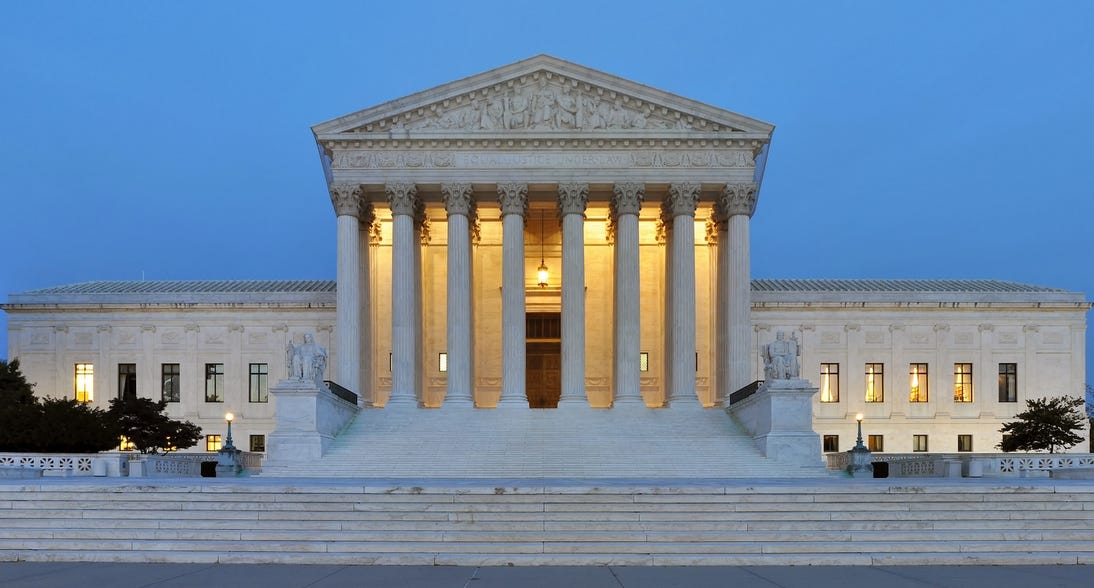SCOTUS upholds the rule of law but makes it harder to get justice
A rushed decision invents a new obstacle just in time to save the Administration from having to answer tough questions about illegal deportations
Late this afternoon, SCOTUS granted the Trump Administration’s request to vacate the Temporary Restraining Order meant to give the lower court time to get the facts about the detention and removal of alleged Venezuelan gang members in the U.S.
Once again, the Supreme Court abuses its emergency docket to make law. It continues its pattern of rushing to judgment or delaying judgment for political rather than legal purposes. And in this case, it puts lives in jeopardy and rewards lawlessness by the administration.
Let’s start with this: the court unanimously confirmed that every one of the deportees is entitled to a hearing. As one of the dissenters wrote,
“To the extent the Government removes even one individual without affording him notice and a meaningful opportunity to file and pursue habeas relief, it does so in direct contravention of an edict by the United States Supreme Court.”
And yet…
The Court rushed to overturn restraints imposed by the lower courts while they attempt to get the facts of a very troubling attempt to whisk people out of the country with no notice, no opportunity to file or to pursue relief of any kind. A hearing was scheduled for tomorrow to answer essential questions of fact. To do so, they invented a new rule about the proper way to object when kidnapped and whisked away to a dungeon in El Salvador.
Did the rush to publish this decision tonight have anything to do with a hearing scheduled for tomorrow in a D.C. courtroom?
What was so important that the Court had to act now? Was it because the issues are so important to the rule of law that the Court felt the need to take them up themselves? Hardly. The Court admits it did not even consider those questions:
“The detainees seek equitable relief against the implementation of the Proclamation and against their removal under the AWA. They challenge the Government’s interpretation of the Act and assert that they do not fall withing the category of removable alien enemies, But we do not reach those arguments.”
Nope. Those questions will take time, so the Court isn’t ready to consider them. But when a lower court attempts to get at those very questions, in rushes SCOTUS to confound those efforts. And the result is that the case will be transferred from D.C. to Texas.
As for as I can tell, that’s what the Court did tonight. It invented a new rule about how to file cases against the Trump Administration’s use of the Alien Enemies Act to abduct and deport people without due process. The result is that those cases must be heard where the detainees are in custody. Or, I guess, were last in U.S. custody.
In what has become a standard trope of the Roberts Court, the majority complains that the dissent is really just empty rhetoric. They also argue that the dissenters would impose wasteful delays in answering the questions the detainees, and indeed, much of America want answered. In fact, thy majority, by using the shadow docket to create new law about how those questions must be heard is entirely responsible for any delay.
As Justice Sotomayor noted in the dissent,
The Government’s Conduct in this litigation poses an extraordinary threat to the rule of law. That a majority of this Court now rewards that Government for its behavior with discretionary equitable relief is indefensible. We as a Nation and a court of law, should be better than this.
It sure looks like SCOTUS rushed in for nothing more than a cynical attempt to find a judge that is more pleasing to Mr. Trump.
Be very worried.




